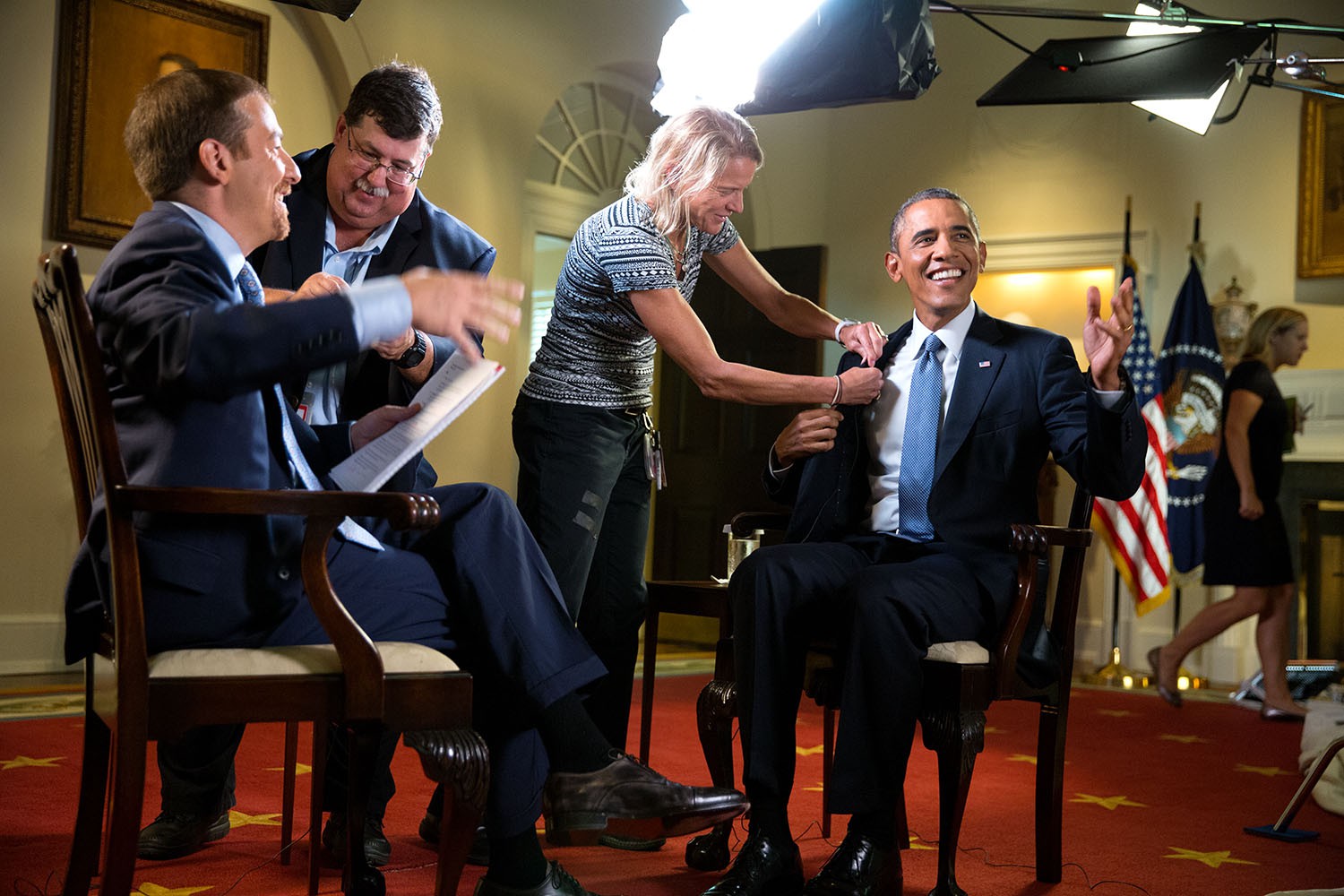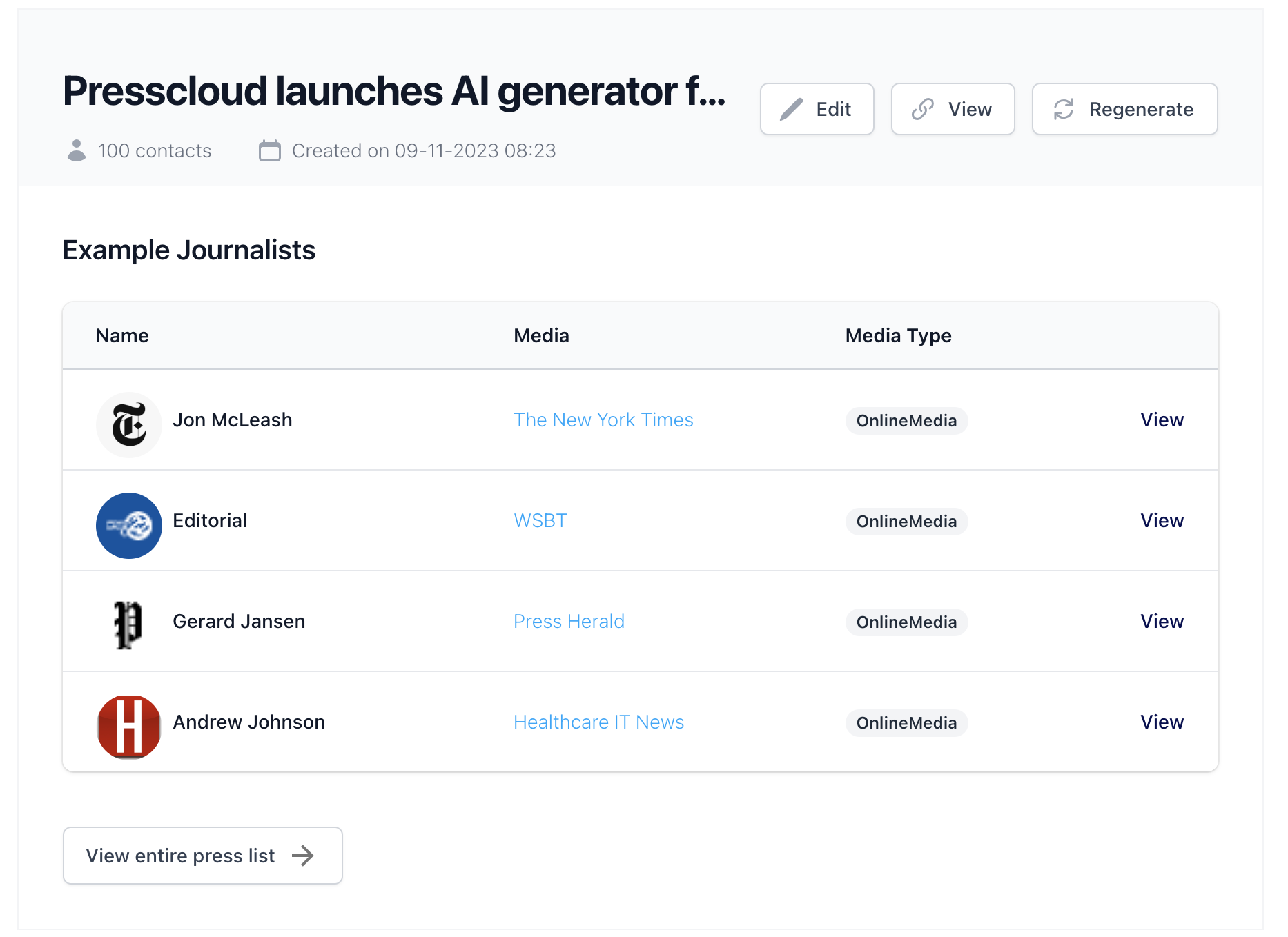Prepare for an Interview
It’s not just a task to figure out what counts as news. Delivering a good interview is quite a challenge. First and foremost, you want to come across as likable. Conversations on radio or TV are popularity contests in the first place: after all, nobody wants to do business with an arrogant jerk.
You want to appear not only nice but also knowledgeable and competent. By showcasing your knowledge, you can become an authority in a particular market. Therefore, you naturally want to convey your information to the public as clearly as possible. But how do you go about it? These six tips will help get you started.
Tip 1: Prepare well
Think ahead about what you want to say and what not. By practicing the conversation with critical colleagues or friends, you will discover where there are gaps in your story. Also research the journalist, the media outlet, and the target audience. Ask yourself which issues are important to a particular medium. Chances are they will be discussed in your interview as well. If you're a guest at BNR, there's a likelihood that the conversation will cover other entrepreneur news.
Discover and acknowledge the prevailing sentiment on the topic you want to discuss. Nothing is more cringeworthy than an out-of-touch entrepreneur or CEO who has no idea how society perceives their company or industry. Ask yourself before an interview: what else might a journalist want to know? You're bound to get those questions. Just ask FC Den Bosch.
Tip 2: Be nice and on time
Come across as friendly. Is a silly question asked about your company or product? That's a perfect opportunity to elaborate on your proposition once more. Never lose 'the audience' out of sight: you are essentially speaking to the journalist’s readers, viewers, or listeners. Ask yourself: how would my statements come across to them?
Also make it a conversation, as an interview is not an interrogation. Try to ask a question in return; inquire about a journalist’s view on a particular issue. Also ensure that an editor does not have to wait for possible questions, visual materials, or other requests. You want to make an editor's life as easy as possible. After all, they have 17 million interview candidates to choose from.
Tip 3: Dare to Say No
Whoever is being interviewed for the first time is usually very tense. How to deal with a journalist? Should we answer every question? Saying no, or not providing additional information, is certainly allowed. An interviewer is definitely not your boss.
Always try to be reasonable. For example, if you don't want to disclose your current revenue, then talk about what you aim the revenue to be in three years. This way, you're 'giving' something away. An interviewer and interviewee do not have the same interests. Consider this but try to unite these interests.
Tip 4: Take Control
Take control if tension arises. Imagine a statement like: ‘Climate change is a serious issue, I can’t deny that. I’m also worried about international tensions. For a trading nation like the Netherlands, that's obviously urgent. Maybe we should talk about that.’
Don’t share everything and be concise: endless digressions are not very inspiring. Do not be tempted by suggestions and contrasts to make statements that you would rather not make. Do not be indiscreet: ‘off the record’ does not exist. Everything said in an interview can be used by a journalist. Therefore, always make sure you can review texts before publication.
Tip 5: Relax
Keep in mind that you are the expert and someone wants to share your knowledge with their audience. In other words, an interview is not a scholastic quiz, but a sign of interest in you or your company.
At the same time, you don’t need to know everything about everything: on some topics (like competitors), you’d rather have no opinion. By not responding to everything, you’re less likely to slip up. The biggest pitfall for highly-educated people is to want to talk about everything. Good news: you are an expert in just one field. That’s more than enough.
Tip 6: Utilize Media Attention
How do you optimally use publicity in a magazine, website, radio, or TV program? Many companies share the publicity they’ve achieved on their own channels. For example, they write a blog about it on their website. Or they place the logos of the media they’ve appeared in on their site, as seen in the image below. The advantage of these logos is that they also instill confidence in the website's visitors.

Tip: Share a publication on the company page on LinkedIn. Then use a modest advertising budget so that even more people notice you have appeared in the media. This way, you smartly combine owned (PR) and paid (advertisements) channels and more people see that you are an expert.
Conclusion
I hope the above tips provide you with guidance for an appearance in the media. In conclusion: do you have to pitch to a medium like BNR? Make sure you can dream your pitch. Practice it on the bike, under the shower, while doing the dishes – at every spare moment. It will save you a lot of nerves.

